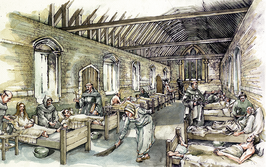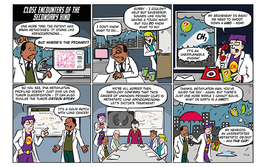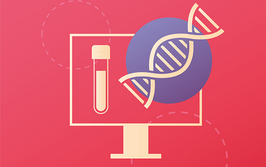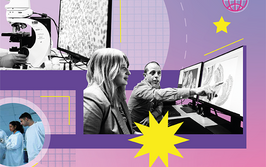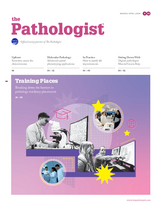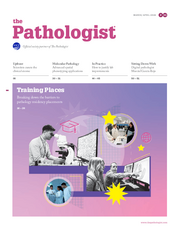Mistakes Happen
Alleviating the emotional impact of medical errors on healthcare staff

“Oh, no! What have I done? Now they won’t get this patient’s result in time for treatment because of my mistake. How could I do this? What’s wrong with me today? I performed the wrong test on that precious sample – and now I don’t have enough for the right test. I can’t bring myself to call the ward and tell them – I’ll have to speak with my manager...”
After work, this laboratory staff member is still thinking about what happened. She can’t seem to get the mistake out of her head. The emotional turmoil is unending!
We have all been there before; we’ve all had that hollow pit-of-the-stomach feeling after an avoidable error. Making a mistake at work can leave anyone lacking confidence and unsure how to proceed – and the feeling only intensifies for medical staff, who are responsible for the health and wellbeing of others. The emotional and psychological effects of a mistake can be deep and long-lasting. We healthcare professionals have been encouraged, as part of our professional obligation, to be open and transparent when things go wrong, so that errors can be constructively analyzed and dealt with – and so that lessons can be learned to prevent another occurrence.
But that brings about the question: what constitutes a mistake or error? I would succinctly define it as “a deviation from accuracy or correctness.” In our professional duties, we all strive for excellence and perfection – which means that openly accepting mistakes can be difficult. Despite the recent push by the UK’s National Health Service to encourage “no blame” cultures – a patient safety initiative involving the introduction of Freedom to Speak Up champions in hospitals nationwide – mistakes are still viewed as shameful, embarrassing, and demoralizing events.
When an error occurs, our principal concern as healthcare professionals is for the welfare of the patient. Unfortunately, this often means that we ourselves are left behind to contemplate the consequences and deal with not only the professional and personal implications, but also the emotional distress. Healthcare professionals have varied emotional responses to mistakes – most commonly guilt, anxiety, anger, shame, and embarrassment. Because laboratory medicine professionals believe that we should not make mistakes, these emotions can have permanent or long-lasting consequences including loss of self-confidence, sleeplessness, self-blame, reduced job satisfaction, anxiety about a harmed reputation, and fear of disciplinary action.
Elbert Hubbard said, “The greatest mistake you can make in life is to continually fear you will make one.” I can remember my first mistake during my period of training as a biomedical scientist. I was very upset with myself. That feeling, and the thought – “How could I have done something like that?” – stayed with me for the rest of the week. It significantly affected my confidence because I know that any error has the potential to negatively affect patient management. But efforts to avoid mistakes can sometimes backfire; I often find that I am most prone to making mistakes when I am trying my hardest to avoid them!
It’s not possible to eliminate errors completely, so handling them in the right way when they occur is of paramount importance. So what resources are available to us as healthcare professionals in the aftermath of an error?
To learn from an error, you must first understand how it happened. Enter root cause analysis, a retrospective technique used to identify the contributory factors involved in the error by providing a structure for reviewing patient safety incidents. When we gain insight into the causes of errors, we are empowered to implement corrective changes to prevent them or to reduce the deleterious impact of future occurrences. Denis Waitley once said, “Mistakes are painful when they happen but, years later, a collection of mistakes is what is called experience.”
Understanding why mistakes happen is key to decreasing their impact – but not just on the patient. It can also help laboratory medicine professionals identify procedural problems, resolve guilt, and put into place action plans that can alleviate the emotional impact of the error. With our goals aimed squarely at improving patients’ outcomes, it’s important not to overlook the other people in care – ourselves and our colleagues.
Pathology Quality Manager/Governance Lead (Chartered Scientist).

